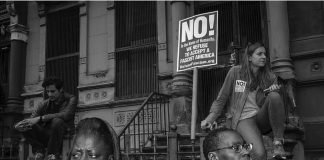Next Africa’s Foreign Agents
Speaking of foreign meddling- it happens all the time in Africa. For long, it’s the West, and now we are seeing Asian footprints. With few exceptions, foreign meddling dominates African politics so much so that you can hardly tell which is Africa’s voice, or if it has one at all. Since shortly after its independence, Africa sounds foreign, lives foreign, wears foreign, only it doesn’t think foreign. Read the testimony of An Economic Hitman to find that veiled curtains of IMF, World Bank and World Trade Organizations; agents of foreign governments that are as attached to Africa as parasites to its host. They are still around -pitching to Africa the need to invest in weapons.  They call it “aids”,but now we know what they are. In every political chess game, Africa gets checkmated often. With tribal mentality, and a narrow mindedness of me, myself and I’, foreign powers humble Africa to its knee with the simple tactics of divide and conquer.
They call it “aids”,but now we know what they are. In every political chess game, Africa gets checkmated often. With tribal mentality, and a narrow mindedness of me, myself and I’, foreign powers humble Africa to its knee with the simple tactics of divide and conquer.
Were you surprised when you heard of foreign meddling in the American politics? Did you feel like “OMG, what a world we now live in”!!!? Well, don’t be, because actually the idea of foreign government meddling with other country’s internal affairs happens so frequently, and because it’s so pervasive in the continent of Africa where many of its leaders are tyrants and just blatantly corrupt, the news hardly make it out.
Just do your research on many coups, civil wars and other occurrences of political instability in Africa. You won’t dig much to see that there is never a smoke without fire.
And speaking of digging, it’s now known that the international media turned a blind eye to a report recently released by the World Bank, which surprisingly favored land reform in South Africa as a significant way to reduce income discrepancies and as well as to promote a social balance. The new report released by the World Bank, however, is of a different perspective in contrast to what can be called a Western-backed report published on a similar issue in Zimbabwean back in 2000, in which the World Bank and western nations sanctioned the South African country for attempting the recovery of its land.
The release of the World Bank’s recent report comes nearly two decades of opposing land reform in Zimbabwe and supporting stiff economic sanctions on the southern African country which includes denial of credit and debt postponement back in March 2006. The World Bank now sees the reason to support land reform in South Africa and even the idea of depriving private ownership of land (expropriation) without compensation.

Here is the kicker: the report and the preceding events that led to it were paid for by South Korea’s Ministry of Strategy and Finance via its Global Facility for Growth and Development initiative.
April 30 this year, marked the day the World Bank released a 147-page report captioned ‘An incomplete transition’ and it states: overcoming the legacy of exclusion in South African, which endorsed the South African government’s perspective contained in its 1994 reconstruction and development programme. Attacking poverty and deprivation must, therefore, be the priority of a democratic government.

The recent report did not resonate well across some foreign climes as it was considered anti-western and was capable of igniting a flame of a genocide campaign against the whites living in South Africa.
The World Bank in collaboration with the South African government referred to the report as a systematic country diagnostic (SCD). The report to an extent also vindicates Zimbabwe’s unpopular land reform programme put in place by the former President Robert Mugabe.
World Bank now suddenly sees the land reform programme as a basis for prosperity in South Africa and Zimbabwe. Hello? After how many years? Why now?
We call on all foreign agents representing the interest of Asian countries in this controversial policy marker as well as other African dealings to register as one. And we call on all Chinese and Korean corporations patronizing Africa to deal fairly even when the negotiating environments aren’t constructed to do so.



